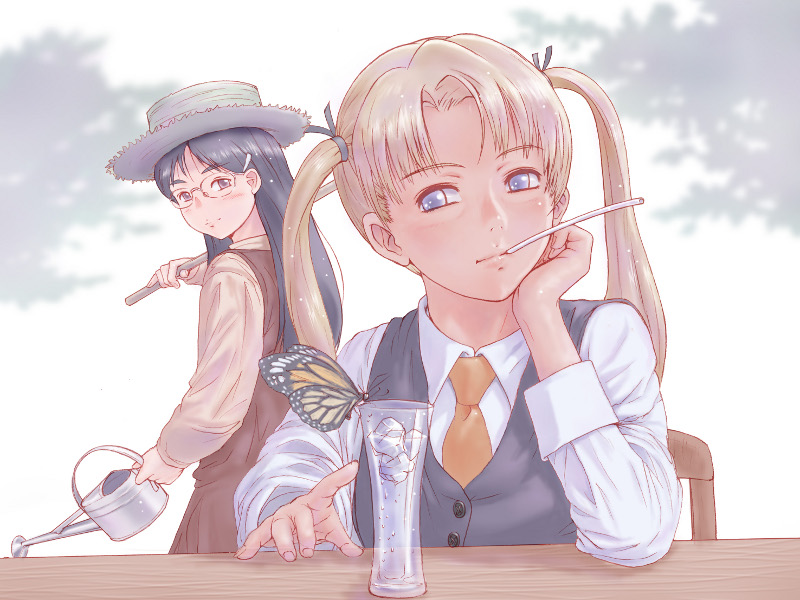Gunslinger Girl - Finale
So, after a tumultuous, often uncertain journey of seven years, I’ve finished Gunslinger Girl. I’ve written a couple posts on Aida Yu’s series before, after its return from publishing limbo in North America, one enthusiastic (of volumes 7-8), one rather concerned about the direction the author had taken (of volumes 11-12). Though volumes 13-14 were fine, I’m afraid that this final (fifteenth) volume largely, though not completely, justified my concerns.
The climax to Gunslinger Girl’s story is in the next-to-last omnibus (volumes 13-14). Aida gives us one more big shootout with the most prominent terrorists the Social Welfare Agency had been fighting, including the man behind the Croce Incident. These volumes are very action-heavy, which is good because that’s what Aida is best at. Many, if not most, of the main characters are dead by the end (which shouldn’t be a spoiler if you’ve read even one volume, since the girls’ short lifespans is emphasised constantly throughout the series), so the fifteenth volume shouldn’t have much to do besides tie up a few loose ends.
Honestly, I’m not sure what to make of the ending. Some parts I like, some I don’t, and some I’m just unsure of (note: if you care, I’m about to get into some legitimate spoilers).
On one hand, I do like how Aida handled Petrushka’s story, and I appreciate that Sandro went to visit her old friend from the ballet academy. Most of the girls’ pasts are irrecoverable, so this return gives her story a greater sense of closure than that of most of the other cyborgs.
Claes is also better treated than most; I appreciated seeing her get into the action, at least briefly, during the final siege. Perhaps it’s appropriate to end the story (minus the epilogue) with the last surviving first-generation cyborg, though since Henrietta was the first to be introduced, the series as a whole may have had more closure if it had also somehow ended with her.
On the other hand, I do have a few problems with the ending. For one, the political coup sub-plot introduced at the end of the final battle seems unnecessary and didn’t really go anywhere.
Closing the Agency makes sense, but I don’t understand why the girls were transferred to a ship. All I can guess is that they’ll be more difficult to find at sea than on land?
Claes’s final line, and the last line of the comic aside from the epilogue chapter, is a comment to Jean while looking at the sunset, “I have been seeing visions lately. On windy evenings like this, sometimes I see the back of a man, walking towards the setting sun…” The line sounds poetic enough, but I have no idea what the significance is. Is she referring to something? Claes occasionally has vague memories of her old handler, so at first I thought she might be referring to him, but I couldn’t find any scenes of him walking at sunset.
As for the epilogue, it’s unusually hopeful for this series. In fact, the whole volume is unusually optimistic, which I guess is okay, but this chapter goes far beyond any of the glimmers of hope from the rest of the series. I do understand the significance; none of the cyborgs were able to become adults, but at least one can live on through Triela’s daughter (or at least her genes). Part of me does like the basic concept of this ending, but the shift in tone and setting feels too abrupt, and ultimately I’d have preferred leaving the epilogue out entirely.
Down the road, perhaps I’ll write up a review of the series as a whole, once I’ve had a chance to re-read and consider the whole thing. The first half is excellent, and it peaks around volume seven or eight. From there, though it certainly doesn’t run off the rails, it gets much more hit-and-miss from arc to arc, generally with the action scenes as the highlights. Despite the somewhat lackluster ending, though, Gunslinger Girl remains a favourite of mine, and it’s still one I’d recommend.
